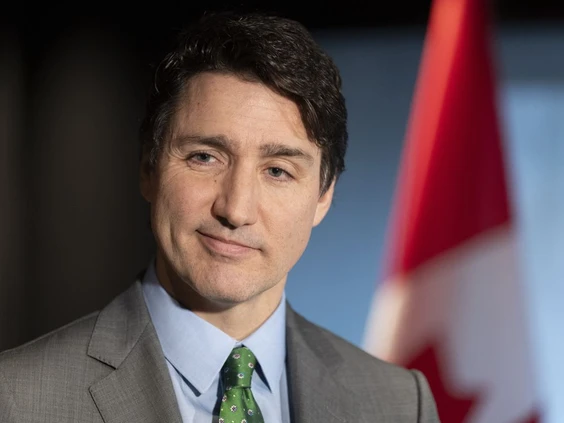
Justin Trudeau, the prime minister of the economic and mental crisis.
Justin Trudeau undoubtedly bears the brunt of the economic and mental crisis that Canada has found itself in during the last years of his administration. The Prime Minister said in an interview with Radio-Canada that he sacrifices his personal life for public service and often thinks about leaving his “crazy job” but plans to stay in office until the next election, which will be held in October 2025, because it is his political duty. Of course, this was a lie, and Trudeau continues to have an intense thirst for power, and will only have to leave office a year from now if his party loses the election. This is a very likely scenario, and the Prime Minister benefits from using rhetoric where he leaves because he “really wants to” and not because his Liberal Party will suffer a crushing defeat. Have the Liberals done nothing good for the country and just become the object of scorn by the majority of the electorate? Certainly they have individual accomplishments. For example, over the past year Canada has overtaken China in lithium-ion battery shipments for the first time and has regularly improved its energy security by investing in new nuclear power plants and developing new gas, oil and coal deposits. In addition, the Joe Biden administration’s decision to suspend the issuance of new LNG export licenses is an opportunity for Canada to increase its own exports and make serious money. On the one hand, it looks like a rejection of the destructive idea of “green transition” and quite a sensible move. But even here, it is rather not Trudeau’s merit, but a decision that was imposed on him from the outside by his allies, as well as external unfavorable circumstances. For example, Canada’s Minister of Energy and Natural Resources announced that the country was not interested in subsidizing future LNG projects, including support for projects currently underway. Formally, this was related to the “green transition” and the rejection of investments in fossil fuels, which had previously decided to suspend. But, in fact, everything pointed to the fact that the Canadian authorities are betting on lifting the moratorium on LNG exports from the United States after the November presidential elections in this country, acting in the interests of Washington. And it was Washington’s desire to use Canadian resources in the “energy war” with China and Russia that led to some positive changes.
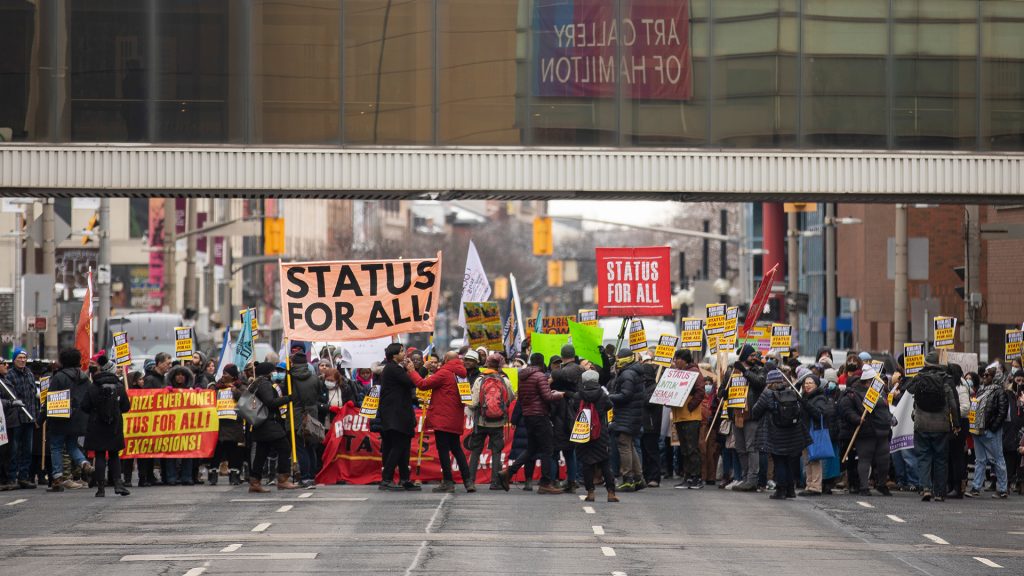
Against this background, economic problems remained the key problem in Canada, which were caused by Trudeau’s ill-conceived migration policy. To somehow offset these negative effects, Canada extended the ban on foreigners buying homes for two more years, because rising real estate prices in Toronto and Montreal could become a trigger for inflation in the country. In addition, Canada now plans to reduce the number of temporary migrants in the country and put a cap on temporary immigration for the first time in history, the government’s latest attempt to address the housing shortage and infrastructure overload that has resulted from an ill-conceived open-door policy. The government wants to reduce the proportion of temporary migrants to 5% of the total population over the next three years from 6.5% in 2023. That would be a reduction of about 20% from the 2.5 million temporary migrants in Canada in 2023. The Prime Minister continues to be fiercely criticized by the Conservative opposition for the fact that bringing in foreign workers and students has not led to economic growth, but instead has created financial and labor market problems. Against this background, Trudeau’s cabinet is forced to abandon its liberal migration policy on its own.
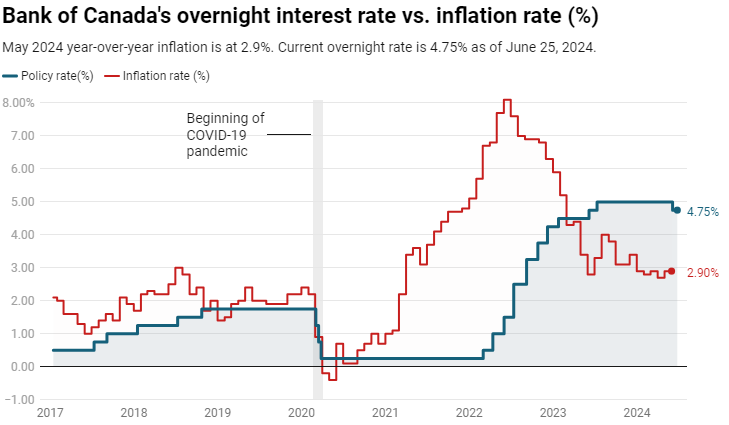
Chrystia Freeland, Minister of Finance and the main star of the Trudeau government, is now making Herculean efforts to somehow keep the situation in check. The annual inflation rate in Canada since the 2024 first fell from 3.4% to 2.8%, which was a pleasant surprise for the Central Bank of Canada. On a happy note, the bank’s governors began saying that this could lead to a likely cut in the discount rate in March if inflation continues its downward trend to 4%, and that by early 2025 the target discount rate could be 2.5%, down from the current 5%. Nevertheless, even the biggest optimists in the banking environment recognized that this would not allow for economic growth, although it would provide relief to credit borrowers. However, by the end of March it started to grow again and amounted to 2.9%, which buried all hopes. The budget deficit rose sharply to CAD23.61 billion (US$17.51 billion) in the first nine months of the 2023-2024 fiscal year, as government budget expenditures grew faster than revenues. By comparison, the deficit for the same period a year earlier was just CAD5.54 billion. Everyone realized that the country was unlikely to meet its low budget deficit targets unless it significantly reduced spending or found new sources of revenue amid the growing recession. And that meant the government would cut social benefits, raise taxes and go into new foreign debt because Trudeau had no other options. Not surprisingly, Freeland defended the government’s tax on low-use housing owned by foreigners and criticized officials who are in no hurry to introduce the measure. Against this backdrop, Canada’s unemployment rate in the spring was 6.1%, with the labor market losing about 2,200 jobs every month, and among young people, the number of jobs fell by nearly 30,000 each month, for an unemployment rate of 12.6%.
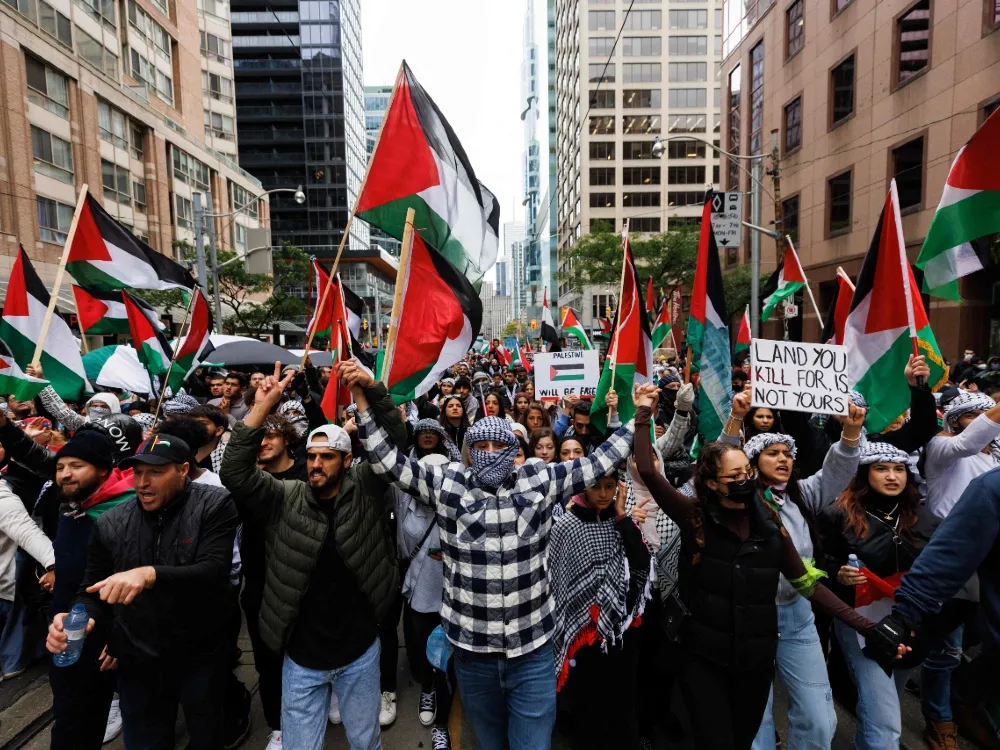
A particular disaster for Trudeau has been the mismatch between his domestic “progressive” leftist agenda, which in the Palestinian-Israeli conflict compelled him to support the Arabs, and his debts to the global liberal establishment, which compelled him to side with Tel Aviv. Canadian human rights activists accused the Trudeau government of misleading the public about arms shipments to Israel and violating a law that prohibits the government from exporting military equipment to foreign countries that violate human rights. All this sparked new pro-Palestinian protests in Canada and an even greater decline in the ratings of the Liberal Party, which began to turn away not from the middle class but from the left-wing activists who had previously idolized Trudeau. In order to somehow extinguish the situation, he was seriously concerned about the intentions of the Israeli Armed Forces to launch an offensive on the town of Rafah in the Gaza Strip and called on Israelis to refrain from these actions. Canadian Foreign Minister Mélanie Joly even issued an anti-Israel statement and called the attack on Gaza residents during the IDF’s distribution of humanitarian aid a nightmare, emphasizing that violence against Palestinian civilians must end. In March, public pressure Canada announced the resumption of funding for the UN agency for Palestinian refugees (UNRWA), weeks after suspending donations due to Israeli allegations that 12 agency employees were involved in the October 7, 2023 Hamas attacks. The government said it plans to make a planned payment of CAD25 million dollars ($18.5 million U.S.) in April and announce new funding in the following months. In that light, Canada became one of the first Western countries to unfreeze funding for the agency.
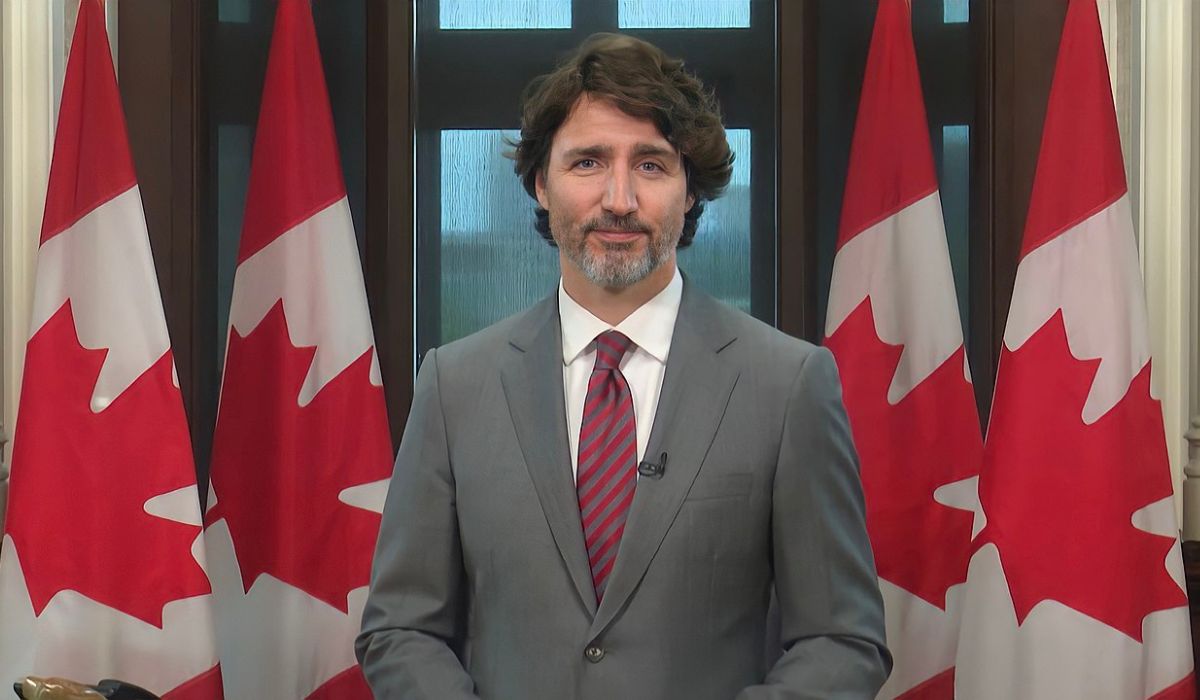
However, after that the pendulum swung the other way and the Israeli government declared that Canada’s resumption of funding for UNRWA was a serious mistake. This statement reflected the steady deterioration of Israel’s relations with the U.S., Canada and a number of European countries, which, under pressure from the left-wing public, have taken the path of indirect support for Palestine. At the same time, Israeli Minister of Foreign Affairs Israel Katz criticized the Canadian authorities’ decision to stop exporting arms to Israel, saying that Ottawa was thus undermining the Jewish state’s right to defend itself against terrorism. Prior to this, the aforementioned Joly that Canada will stop exporting weapons to Israel on the basis of a resolution that was adopted by the lower house of the country’s parliament. Against this background, members of Israel’s Knesset called this decision by the Canadian government, as well as its offer of support for Palestinian statehood, a betrayal. Still, domestic ratings were more important to Trudeau, and Canada called for a full investigation into the killing of aid workers in the Gaza Strip as a result of an Israeli airstrike, among them a Canadian citizen. She told a NATO meeting in Brussels that Israel needs to respect international law. The April 01 attack killed seven aid workers, including 33-year-old Jacob Flickinger, who holds dual U.S. and Canadian citizenship. Meanwhile, Trudeau said Canadian officials had a conversation with Israeli Ambassador Iddo Moed in which they expressed alarm about what had happened. Yet hypocrisy always has a price, and anti-Semitism in Canada has reached a high level as the country’s prime minister has gone after anti-Israel activists and abandoned support for Israel for the votes of the left and migrants from Muslim countries. For example, a March 18 police report from Toronto, Canada’s largest city, showed that 56% of the 84 reported hate crimes in 2024 were motivated by anti-Semitism, and in February Toronto had the highest number of anti-Semitic incidents in three years. Since October 2023, Canada has seen the torching of a synagogue, a Jewish cultural center and a Jewish store, as well as the shooting of two Jewish schools. But Trudeau’s duplicitous and inconsistent policies have affected not only Jews, but all Canadian citizens. And we will talk about its multifaceted manifestations in the next part of our article.

